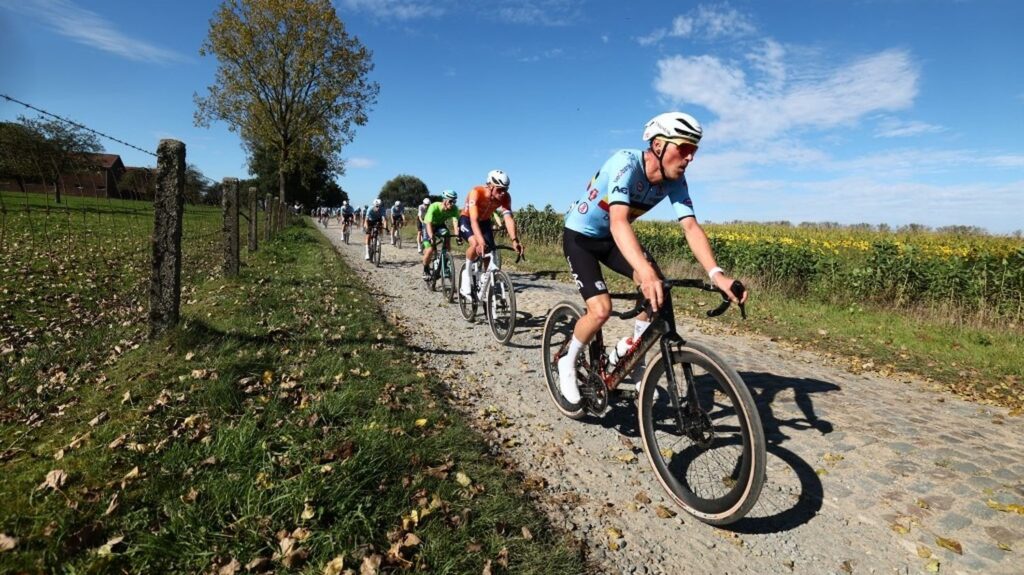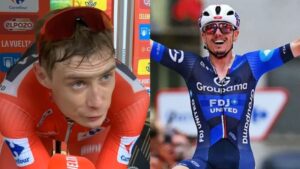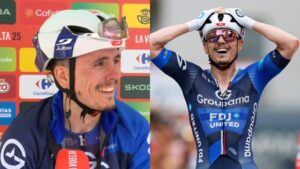
Two months after his retirement on the road, Romain Bardet won a Gravel World Cup stage on Saturday in Italy.
/2023/07/25/64bfe77cf3234_adrien-rond.png)
Published
Updated
Reading time: 3min
/2025/08/25/043-102018823-68ac25dfcfb8a729281170.jpg)
Gravel, Kézako? Romain Bardet won on Saturday August 23, the Monsterrato, a 120 km race in the Piedmont vines (Italy), which is part of the Gravel World Cup. Like many peloton stars, the world's vice-champion on the road (2018), second in the Tour de France (2016) and winner of four stages on the big loop, fell on the charm of this new version of cycling, booming for three years. Because the Gravel never ceases to attract the neoretraités of the peloton (Peter Sagan, Greg Van Avermaet), but also the current stars (Matej Mohoric, Mathieu Van der Poel …).
A growing interest which is explained by the very nature of the discipline, which takes its name of English, Gravel meaning Gravier in the language of Shakespeare. Halfway between the road bike, mountain biking and cyclo-cross, the Gravel is indeed the condensed of other cycling disciplines. The races, 50 to 200 km long, with positive elevation, compete on all types of land: spotted paths, dirt roads, paved sectors. The only rule is as follows: a gravel race cannot have more than 20% asphalt paths.
In Gravel, piloting and versatility are therefore at the heart of the effort. This comes into account when designing equipment. At first glance, Gravel's bikes strangely resemble those on the road. But they are actually more robust, to resist all terrains, with more flared handlebars to promote piloting, and different developments to give users more flexibility in muddy parts, for example.
Above all, Gravel's bikes are equipped with specific tires, notched for better grip away from tar, but especially almost twice wider than on traditional road bikes, with about 50 mm. These technical characteristics also make Gravel bikes ideal frames for bicycle trips (or bikepacking), even more than the bikes all path (VTC), less sporty and therefore less fast than the Gravels.
The bikepacking has also contributed to the competitive development of the Gravel, pushing the manufacturers to invest this market, and to encourage their athletes to participate in gravel races. Which is notably the case of Slovenian Matej Mohoric, or the Dutch Mathieu Van der Poel, world champion in the discipline. Since 2022, the International Cycling Union (UCI) has indeed organized Gravel Worlds, in early October, with an almost prestigious as on road list: Gianni Vermeersch (2022), Matej Mohoric (2023) and Mathieu Van der Poel (2024) in men, Pauline Ferrand-Prévôt (2022), Katarzyna Niewiadoma (2023) and Marianne Your (2024) in women. While waiting for Romain Bardet?



